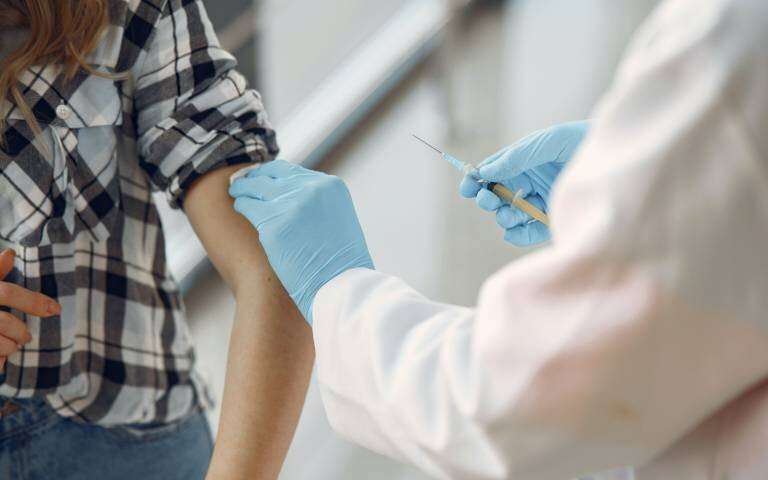A fifth of people say they’re unlikely to get vaccinated against COVID-19


A fifth (22%) of people have said that when a COVID-19 vaccine is approved, they’re unlikely to get it, with 10% of people saying they were ‘very unlikely’ to get vaccinated, find UCL researchers as part of the COVID-19 Social Study.
Only half (49%) of people reported being ‘very likely’ to get vaccinated. Results also suggest substantial levels of misinformation amongst the general public about vaccines, with half (53%) of respondents believing to varying degrees that vaccines can cause unforeseen effects. In addition to this, almost a third (30%) showed substantial beliefs that vaccines can cause future problems in adults or children which have not yet been discovered, and 15% report believing to varying degrees that vaccines do not work.
A quarter (25%) of respondents believe to varying degrees that vaccines are used for commercial profiteering, with around 4% strongly believing that vaccine programs are a con from pharmaceutical companies, and public authorities promote vaccination for financial gain.
Launched in the week before lockdown started, the ongoing UCL COVID-19 Social Study is funded by the Nuffield Foundation with additional support from Wellcome and UK Research and Innovation (UKRI). It is the UK’s largest study into how adults are feeling about the lockdown, government advice and overall wellbeing and mental health with over 70,000 participants who have been followed across the last 26 weeks.
Lead author, Dr. Daisy Fancourt (UCL Epidemiology & Health Care) said: “Our study highlights a concerning level of misinformation around vaccines, which could significantly affect uptake once a COVID-19 vaccine is approved.
“Whilst the majority of people have said they are likely to get a COVID-19 vaccine once one is available, a worrying amount of respondents have said that not only will they not get the vaccine, but that they don’t believe vaccines work or worry about potential side-effects, concerns that lack any basis in fact.
“It is critical the government and public health bodies publicize the importance of getting a vaccination, and explain why it will be critical in fighting the virus and protecting society.”
The study also looked at intentions to get the flu vaccine this year, which is being promoted more heavily than usual to try and help control the burden of the flu season on the health service but which is not freely available for everyone. 64% reported that they would be likely to get a flu vaccine this winter, while 21% reported they were very unlikely to get the flu vaccine.
Older adults were nearly three times as likely to report strongly on intentions to get a flu vaccine (73% of over 60 year olds very likely vs 25% of 18-29 year olds), which matches usual patterns in vaccination against the flu, but is a divide that wasn’t clearly replicated with the COVID-19 vaccine (58% of over 60s very likely vs 45/46% of 18-59s). Notably, older adults felt they were more likely to get the flu vaccine (73%) than a COVID-19 vaccine (58%).
Cheryl Lloyd, education program head at the Nuffield Foundation said: “These findings reveal valuable insights into public concerns about vaccinations and highlight the importance of building public trust in the safety and efficacy of a COVID-19 vaccine, particularly at a time when there is a significant lack of confidence in the government response to the pandemic.
“Given people’s reasons for distrust of vaccines, transparency about the scientific evidence and the role of commercial providers is likely to be a key factor in gaining public trust, as is involving the public in the decision-making process.”
Source: Read Full Article